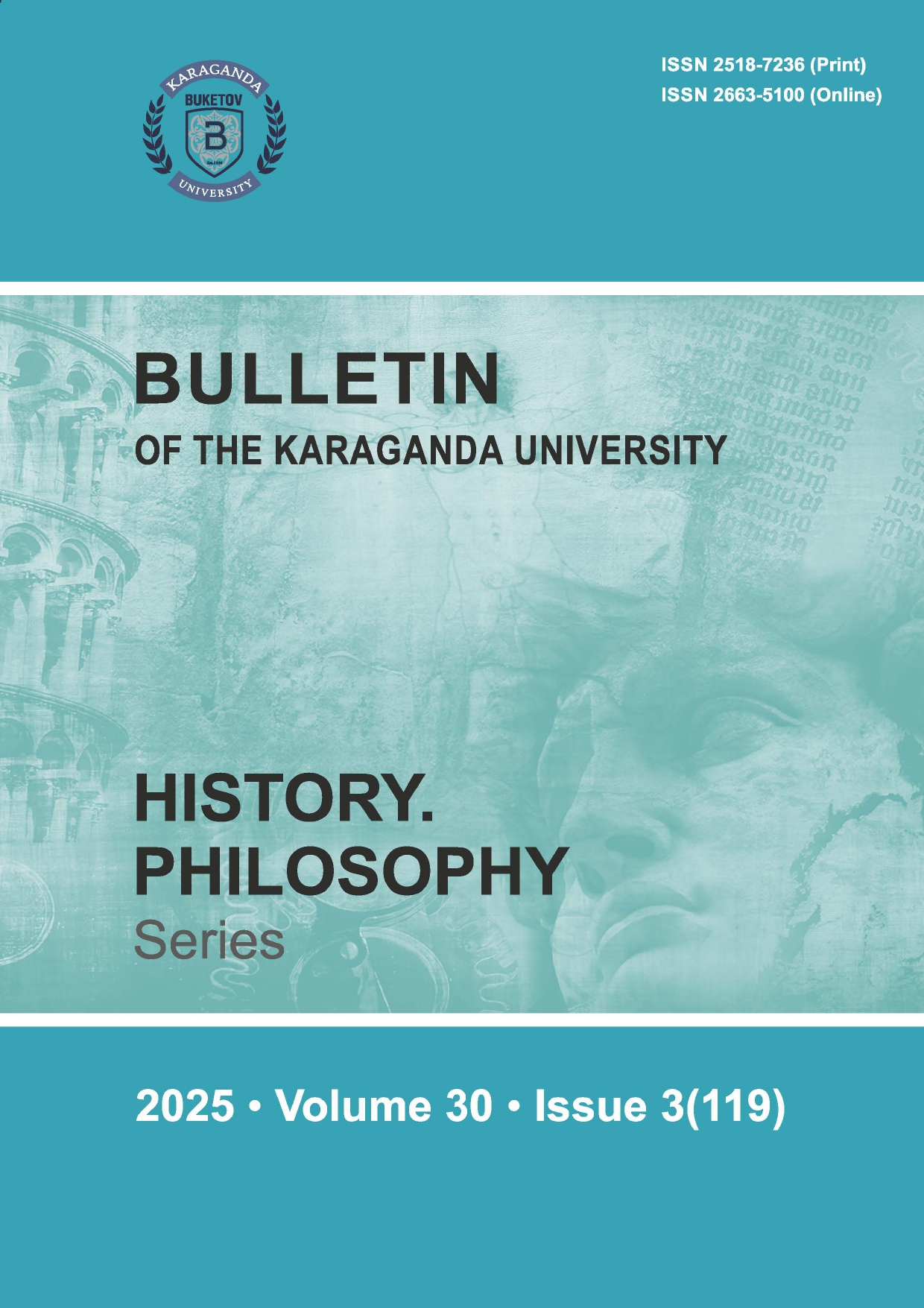Some Stories about the Activities of the “Red Caravan” Organization during the Famine in Akmola Province in 1921–1923
DOI:
https://doi.org/10.31489/2025hph3/192-200Keywords:
“The Red Caravan”, the famine of 1921-1923, Akmola province, food committees, humanitarian assistance, Soviet propagandaAbstract
The article investigates the activities of the “Red Caravan” organization in Akmola province during the tragic period of the famine in 1921–1923. In conditions of an unprecedented food crisis, exacerbated by the consequences of the Civil War, drought and epidemics, the Soviet authorities deployed a network of mobile units to combat famine and strengthen their power. The study analyzes the organizational principles and multifunctional nature of the “Red Caravan” organization that not only delivered necessary food and medical assistance, but also performed political propaganda and gathered information on the ground. The main focus is on the analysis of the crisis`s origin, the organizational forms of assistance delivery to the population, the logistics
and routes of the caravan, as well as the effectiveness of its activities in rural areas. Based on the analysis of historical sources, archival materials of the Provincial Executive Committee, Provincial Food Committee and Provincial Committee of the Russian Communist Party (Bolsheviks) of Akmola Province, the article deals with the key aspects of functioning of these units, their impact on mitigating the effects of the famine and their role in maintaining stability in the region. It examines the political and propaganda component of the caravan's work, reflecting early attempts by the Soviet authorities to introduce centralized governing mechanisms in a humanitarian catastrophe. The study concluded that the “Red Caravan” organization played
a significant role as one of the key instruments of the Soviet authority in ensuring population’s survival under catastrophic conditions.




